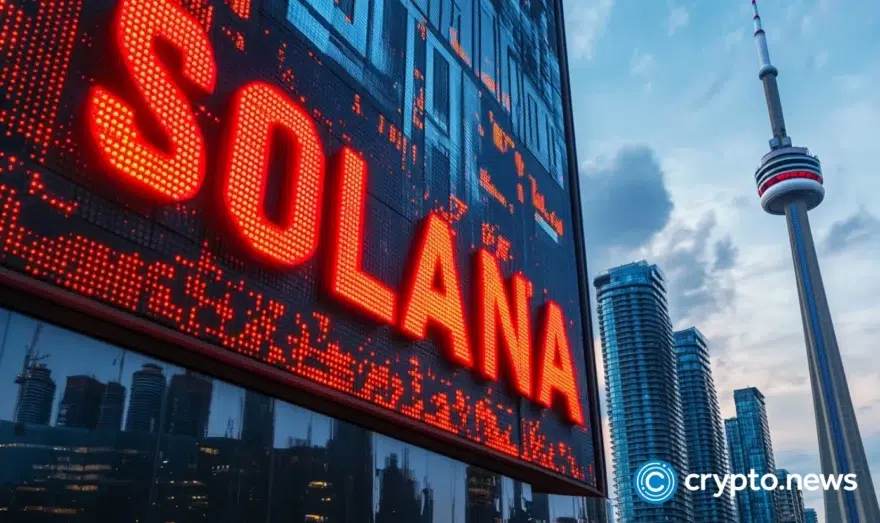What Is a Perpetual Swap Contract? A Beginner’s Guide to Perpetual Futures

First introduced to the market by cryptocurrency exchange BitMEX in 2016, perpetual swap contracts have become one of the most popular vehicles for trading crypto. Read on to learn what perpetual swap contracts are, how they work, and how they differ from crypto futures.
Table of Contents
What Is a Perpetual Swap Contract?
A perpetual swap, also known as a perpetual futures contract, is a financial derivative product that allows traders to speculate on the price movement of cryptocurrencies with leverage.
Perpetual swap contracts are similar to traditional futures contracts. However, the main difference is that the former don’t have expiration dates, and their price must be affixed to the spot price of the underlying asset in question.
Given that perpetual swaps don’t have an expiration date, cryptocurrency exchanges that offer them incorporate a price anchoring system known as the funding rate mechanism.
The funding rate mechanism is crucial in keeping prices of the perpetual swap contracts at par with the current market price of the digital asset being tracked.
The Difference Between Futures and Perpetual Futures Contracts?
The first difference between a perpetual futures contract and a crypto futures contract is that the former has no expiration date while the latter has an expiration date.
That means that a trader who opts to use a traditional futures contract will enter into a contract with another trader to buy or sell a given digital asset at a specified date for a pre-agreed price in the future. Conversely, a trader who opts for the perpetual future contract will be able to buy and sell them at any time at the current price. This means that a trader using a perpetual swap contract will not need to constantly re-establish a short or long position.
And this brings us to the second difference – the price of a perpetual future contract must be pegged to the spot price of the particular digital asset. However, for a futures contract, the price doesn’t have to be pegged on the underlying asset or the value of the contract, as they will automatically converge as the expiration date approaches.
Thirdly, the price of a perpetual contract usually trades closer to the spot price of the underlying cryptocurrency because the funding rate is the main difference between the perpetual contract and the spot price. Conversely, future contracts have a basis, which is the difference between the spot and the futures price.
Fourthly, because of the funding rate mechanism, perpetual swap contracts are typically more expensive compared to crypto futures, especially when traders hold onto their positions for a lengthier period of time.
How Do Perpetual Swaps Work?
Let’s use bitcoin as an example. A trader can go long bitcoin using perps by buying two BTC/USD perpetual swap contracts and depositing $40,000 as collateral. This means that each BTC/USD perpetual swap contract is worth $20,000. Should the price of Bitcoin rise to $30,000 and the trader decides to close the position, they would have generated $10,000 on each perpetual swap. In total, the trader will have made a $20,000 profit.
However, it’s worth mentioning that the above breakdown doesn’t take into account the ramifications of the funding rate, which would determine the exact profit that the trader earns.
Also, in this example, no leverage was used. If leverage had been in play, the profit on the trade would have been higher as it would have been multiplied by the amount of leverage used.
In addition, a perpetual swaps contract can be settled with a simple cash exchange or the ‘physical’ delivery of the underlying asset.
The Pros & Cons of Perpetual Swaps
Pros of perpetual swaps include:
- Typically have deep liquidity.
- Traders can trade with high leverage.
- Provides the ability to short cryptocurrencies.
Cons of perpetual swaps include:
- Highly risky as traders can lose their entire capital, especially when leverage is used.
- There are costs attached to the funding rate mechanism.
- There could be counterparty risks involved in the trading of perpetual swaps.
FAQs
How long can I hold a perpetual swap contract?
Unlike traditional future contracts, perpetual swaps do not have an expiry date, and traders can hold a position for as long as they like.
Why should I use a perpetual swap contract?
If you are an experienced trader and are comfortable with trading derivatives, perpetual swaps provide you with an accessible crypto derivatives product that allows you to seamlessly trade crypto assets with leverage.
What is a perpetual funding rate?
It’s the primary mechanism that is used to provide price stability for perpetual contracts. It incentivizes traders to purchase perpetual swap contracts when the price is low commensurate to the index and sell when the price is high relative to the index.















